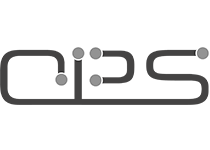Nino Bohn

E-Mail: nino.bohn(at)uni-siegen.de
Raum: US-D 118 (Ludwig-Wittgenstein-Haus, Campus Unteres Schloss)
Telefon: –
Sprechstunde: Nach Vereinbarung
Vita
Nino Bohn studierte an der Universität Siegen B.A. Sozialwissenschaften und Medienwissenschaften. In seiner, in der Political Data Science angesiedelten, Abschlussarbeit verfasste er zusammen mit Christian Busch eine computergestützte Medien-Inhaltsanalyse zum Thema „Eine Medien-Inhaltsanalyse des Wahlkampfverhaltens deutscher Politiker auf Facebook unter besonderer Berücksichtigung von Negative Campaigning“ und zeigte damit auf, wie deutsche Politiker „Negative Campaigning“ in Social Media einsetzen und welche Effekte dies auf soziale Interaktionen und Reichweite hat. Dafür erhielt er den Tim-Spier-Studienpreis der Sozialwissenschaften 2017 für die beste Bachelorabschlussarbeit.
Während seines Masters in Medien & Gesellschaft mit den Schwerpunkten Sozioinformatik und Sozialwissenschaften an der Universität Siegen, arbeitete er als wissenschaftliche Hilfskraft im Projekt Creactive Citizen. Seine Masterthesis schrieb er im Rahmen dieses Projekts über „Bürgerbeteiligung in der Stadtplanung durch virtuelle Visualisierung urbaner Räume und (architektonischer) Gestaltungskonzepte“. In dieser Arbeit wurden verschiedene interaktive Visualisierungskonzepte von Bauvorhaben explorativ erforscht. Anschließend wurde auf Basis von Stakeholder-Interviews ein funktionaler Prototyp entwickelt und evaluiert.
Nach Abschluss des Masterstudiums war Nino Bohn weiter an der Universität Siegen im Projekt Creactive Citizen als wissenschaftlicher Mitarbeiter tätig. Dort beschäftigte er sich weiterhin mit digitalen Bürgerbeteiligungswerkzeugen und möglichen Einsatzszenarien in der Stadtentwicklung.
Seine Forschungsinteressen liegen im Bereich der qualitativen und quantitativen Methoden empirischer Sozialforschung. Aus einer sozio-informatischen Perspektive interessiert ihn die Nutzung digitaler Instrumente in öffentlichen Kontexten mit besonderem Fokus auf cyber-physischen Systemen.
Publikationen
2025
-
Taugerbeck, S., Bohn, N. S., Ahmadi, M., Krings, K. & Wulf, V. (2025)From Crisis to Resilience: Design Spaces for Crisis-Responsive Infrastructuring in Adapting Remote Work Practices in a Video Game Development Company During COVID-19 (and Beyond)
IN Proc. ACM Hum.-Comput. Interact., Vol. 9, Pages: CSCW012:1–CSCW012:38 doi:10.1145/3710910
[BibTeX] [Abstract] [Download PDF]The COVID-19 pandemic triggered an unprecedented shift from office-based to remote work, catching many organizations off guard. This paper examines a German video game development company’s adaptation to enforced working from home during the first lockdown. Through remote interviews with 20 employees from various departments, we identify technological, physical, organizational, and socio-psychological challenges. To address these, we devised a Crisis-Responsive Infrastructuring framework, blending socio-technical perspectives with strategies to enhance organizational adaptability. Our research highlights the crucial and reassuring role of Information and Communication Technology in maintaining productivity and social connectivity and reshaping work dynamics and infrastructure. Further, we emphasize the importance of flexible work concepts, such as hybrid models and decentralized organizations, in fostering resilience. Finally, by advocating for adaptive infrastructures that support remote work during crises and beyond, we aim to enrich the discourse on modern work practices and offer a systematic approach to strengthening organizational resilience.
@article{taugerbeck_crisis_2025, title = {From {Crisis} to {Resilience}: {Design} {Spaces} for {Crisis}-{Responsive} {Infrastructuring} in {Adapting} {Remote} {Work} {Practices} in a {Video} {Game} {Development} {Company} {During} {COVID}-19 (and {Beyond})}, volume = {9}, shorttitle = {From {Crisis} to {Resilience}}, url = {https://dl.acm.org/doi/10.1145/3710910}, doi = {10.1145/3710910}, abstract = {The COVID-19 pandemic triggered an unprecedented shift from office-based to remote work, catching many organizations off guard. This paper examines a German video game development company's adaptation to enforced working from home during the first lockdown. Through remote interviews with 20 employees from various departments, we identify technological, physical, organizational, and socio-psychological challenges. To address these, we devised a Crisis-Responsive Infrastructuring framework, blending socio-technical perspectives with strategies to enhance organizational adaptability. Our research highlights the crucial and reassuring role of Information and Communication Technology in maintaining productivity and social connectivity and reshaping work dynamics and infrastructure. Further, we emphasize the importance of flexible work concepts, such as hybrid models and decentralized organizations, in fostering resilience. Finally, by advocating for adaptive infrastructures that support remote work during crises and beyond, we aim to enrich the discourse on modern work practices and offer a systematic approach to strengthening organizational resilience.}, number = {2}, urldate = {2025-05-13}, journal = {Proc. ACM Hum.-Comput. Interact.}, author = {Taugerbeck, Sebastian and Bohn, Nino S. and Ahmadi, Michael and Krings, Kevin and Wulf, Volker}, month = may, year = {2025}, pages = {CSCW012:1--CSCW012:38}, }
2023
-
Krings, K., Bohn, N. S., Hille, N. A. L. & Ludwig, T. (2023)“What if everyone is able to program?” – Exploring the Role of Software Development in Science Fiction
Proceedings of the 2023 CHI Conference on Human Factors in Computing Systems. Hamburg Germany, Publisher: ACM, Pages: 1–13 doi:10.1145/3544548.3581436
[BibTeX] [Download PDF]@inproceedings{krings_what_2023, address = {Hamburg Germany}, title = {“{What} if everyone is able to program?” – {Exploring} the {Role} of {Software} {Development} in {Science} {Fiction}}, isbn = {978-1-4503-9421-5}, shorttitle = {“{What} if everyone is able to program?}, url = {https://dl.acm.org/doi/10.1145/3544548.3581436}, doi = {10.1145/3544548.3581436}, language = {en}, urldate = {2023-04-21}, booktitle = {Proceedings of the 2023 {CHI} {Conference} on {Human} {Factors} in {Computing} {Systems}}, publisher = {ACM}, author = {Krings, Kevin and Bohn, Nino S. and Hille, Nora Anna Luise and Ludwig, Thomas}, month = apr, year = {2023}, pages = {1--13}, } -
Taugerbeck, S., Ahmadi, M., Schorch, M., Bohn, N. & Wulf, V. (2023)Navigating the Challenges of Remote Research in Times of Crisis and Beyond
[BibTeX] [Abstract] [Download PDF]Crises such as the COVID-19 pandemic put heavy restrictions on researchers who mainly follow a qualitative, ethnographic stance that typically relies on immersion in the setting, bringing remote research into the spotlight. In this paper, we describe how we, as qualitative researchers, responded to the crisis by comparing our experiences in conducting remote interviews in two German contexts: 1) with employees from a video game company during the summer of 2020 and 2) with several political and non-political actors in a rural region during autumn 2020 to summer 2021. Drawing on these …
@inproceedings{taugerbeck_navigating_2023, title = {Navigating the {Challenges} of {Remote} {Research} in {Times} of {Crisis} and {Beyond}}, url = {https://dl.eusset.eu/handle/20.500.12015/5007}, abstract = {Crises such as the COVID-19 pandemic put heavy restrictions on researchers who mainly follow a qualitative, ethnographic stance that typically relies on immersion in the setting, bringing remote research into the spotlight. In this paper, we describe how we, as qualitative researchers, responded to the crisis by comparing our experiences in conducting remote interviews in two German contexts: 1) with employees from a video game company during the summer of 2020 and 2) with several political and non-political actors in a rural region during autumn 2020 to summer 2021. Drawing on these ...}, language = {en}, urldate = {2023-10-05}, author = {Taugerbeck, Sebastian and Ahmadi, Michael and Schorch, Marén and Bohn, Nino and Wulf, Volker}, year = {2023}, note = {Publisher: European Society for Socially Embedded Technologies (EUSSET)}, }
2021
-
Saßmannshausen, S. M., Radtke, J., Bohn, N., Hussein, H., Randall, D. & Pipek, V. (2021)Citizen-Centered Design in Urban Planning: How Augmented Reality can be used in Citizen Participation Processes
Designing Interactive Systems Conference 2021. New York, NY, USA, Publisher: Association for Computing Machinery, Pages: 250–265 doi:10.1145/3461778.3462130
[BibTeX] [Abstract] [Download PDF]Most participation processes in urban planning offer poor incentives, especially for young citizens, hence important citizen’s needs are excluded. Our work aims at identifying the degree to which Augmented Reality (AR) might motivate young people. We developed an AR-app with Unity3D to create new interaction concepts for use cases in urban planning. Building projects and environment changes are visualized, so citizens can contribute design ideas to the process. Using a human-centered design approach, we invited different stakeholders to participate. We conducted 40 interviews and a survey, then interaction concepts were evolved by citizens in four participatory design workshops. Our findings show that AR can motivate increased participation in urban planning. We also demonstrate a new approach to engaging low-tech users in designing high-tech solutions such as AR systems by using haptic 3D-tools like Lego or clay. Furthermore, we propose ways in which AR could be used collaboratively and embedded in existing participation processes.
@inproceedings{sasmannshausen_citizen-centered_2021, address = {New York, NY, USA}, series = {{DIS} '21}, title = {Citizen-{Centered} {Design} in {Urban} {Planning}: {How} {Augmented} {Reality} can be used in {Citizen} {Participation} {Processes}}, isbn = {978-1-4503-8476-6}, shorttitle = {Citizen-{Centered} {Design} in {Urban} {Planning}}, url = {https://doi.org/10.1145/3461778.3462130}, doi = {10.1145/3461778.3462130}, abstract = {Most participation processes in urban planning offer poor incentives, especially for young citizens, hence important citizen's needs are excluded. Our work aims at identifying the degree to which Augmented Reality (AR) might motivate young people. We developed an AR-app with Unity3D to create new interaction concepts for use cases in urban planning. Building projects and environment changes are visualized, so citizens can contribute design ideas to the process. Using a human-centered design approach, we invited different stakeholders to participate. We conducted 40 interviews and a survey, then interaction concepts were evolved by citizens in four participatory design workshops. Our findings show that AR can motivate increased participation in urban planning. We also demonstrate a new approach to engaging low-tech users in designing high-tech solutions such as AR systems by using haptic 3D-tools like Lego or clay. Furthermore, we propose ways in which AR could be used collaboratively and embedded in existing participation processes.}, urldate = {2021-07-05}, booktitle = {Designing {Interactive} {Systems} {Conference} 2021}, publisher = {Association for Computing Machinery}, author = {Saßmannshausen, Sheree May and Radtke, Jörg and Bohn, Nino and Hussein, Hassan and Randall, Dave and Pipek, Volkmar}, month = jun, year = {2021}, keywords = {creativecitizen, augmented reality, citizen participation, human-centered design, urban planning}, pages = {250--265}, } -
Radtke, J., Saßmannshausen, S. M. & Bohn, N. (2021)Windkraft in Nordrhein-Westfalen: Einstellungen zu Akzeptanz, Beteiligung und Konfliktlösung
doi:10.25819/ubsi/10009
[BibTeX] [Abstract] [Download PDF]In diesem Working Report werden Ergebnisse einer Umfrage in Nordrhein-Westfalen präsentiert, die Einstellungen der Bevölkerung zur Windenergie widerspiegeln. Die Abfragen zeigen, dass Klimaschutz-Maßnahmen, die Energiewende und der Ausbau der Windkraft große Zustimmung bei der Bevölkerung finden. Bei der Windenergie wird ein Nutzen für die lokale Gemeinschaft präferiert, bestenfalls durch direkten Bezug günstigen Stroms. Im Falle der Planung neuer Windparks werden detaillierte Informationen gewünscht, wobei wissenschaftlichen Informationsquellen am stärksten vertraut wird. Klassische Informationsveranstaltungen werden überwiegend bevorzugt, sehr viel weniger Online-Formate. Die Hälfte der Befragten würde eine Visualisierungs-App für das Smartphone benutzen. Finanzielle Beteiligung wird zwar stark von monetären Anreizen oder einem vergünstigen Stromtarif abhängig gemacht, wird aber auch durch Klimaschutz-Einstellungen beeinflusst. Planungskonflikte sollten durch Bürgerentscheide, Experten oder Bürgerversammlungen gelöst werden. Damit unterstreichen die Ergebnisse die Bedeutung von qualitätsvoller Informierung, Beteiligung und Neutralität für die Akzeptanz von Windenergie.
@article{radtke_windkraft_2021, title = {Windkraft in {Nordrhein}-{Westfalen}: {Einstellungen} zu {Akzeptanz}, {Beteiligung} und {Konfliktlösung}}, copyright = {Attribution-NoDerivatives 4.0 International}, shorttitle = {Windkraft in {Nordrhein}-{Westfalen}}, url = {https://dspace.ub.uni-siegen.de/handle/ubsi/1997}, doi = {10.25819/ubsi/10009}, abstract = {In diesem Working Report werden Ergebnisse einer Umfrage in Nordrhein-Westfalen präsentiert, die Einstellungen der Bevölkerung zur Windenergie widerspiegeln. Die Abfragen zeigen, dass Klimaschutz-Maßnahmen, die Energiewende und der Ausbau der Windkraft große Zustimmung bei der Bevölkerung finden. Bei der Windenergie wird ein Nutzen für die lokale Gemeinschaft präferiert, bestenfalls durch direkten Bezug günstigen Stroms. Im Falle der Planung neuer Windparks werden detaillierte Informationen gewünscht, wobei wissenschaftlichen Informationsquellen am stärksten vertraut wird. Klassische Informationsveranstaltungen werden überwiegend bevorzugt, sehr viel weniger Online-Formate. Die Hälfte der Befragten würde eine Visualisierungs-App für das Smartphone benutzen. Finanzielle Beteiligung wird zwar stark von monetären Anreizen oder einem vergünstigen Stromtarif abhängig gemacht, wird aber auch durch Klimaschutz-Einstellungen beeinflusst. Planungskonflikte sollten durch Bürgerentscheide, Experten oder Bürgerversammlungen gelöst werden. Damit unterstreichen die Ergebnisse die Bedeutung von qualitätsvoller Informierung, Beteiligung und Neutralität für die Akzeptanz von Windenergie.}, language = {de}, urldate = {2021-12-16}, author = {Radtke, Jörg and Saßmannshausen, Sheree May and Bohn, Nino}, year = {2021}, keywords = {creativecitizen}, }



